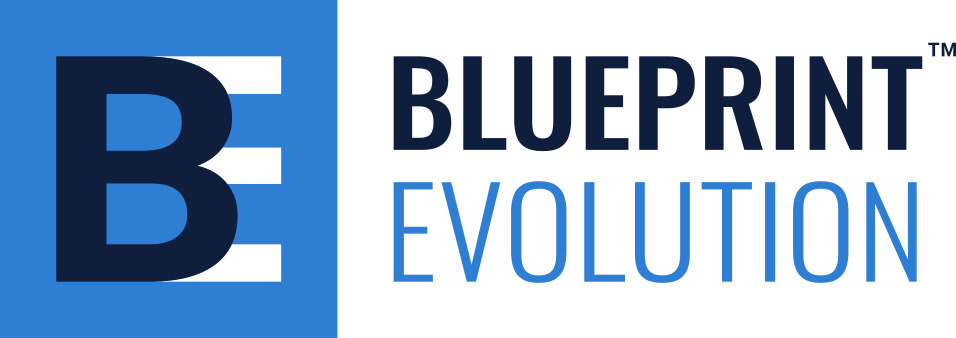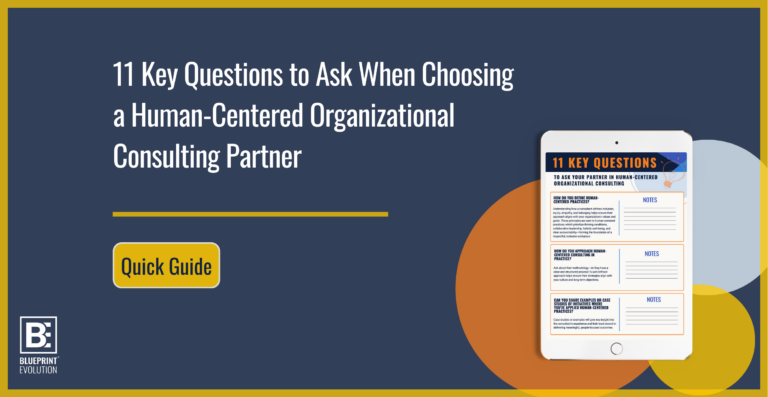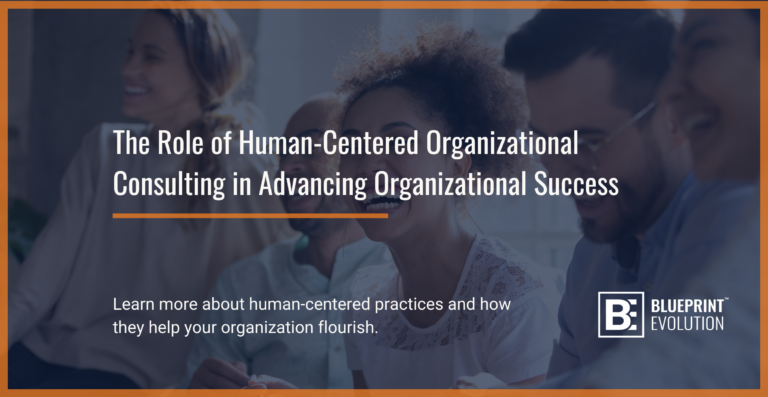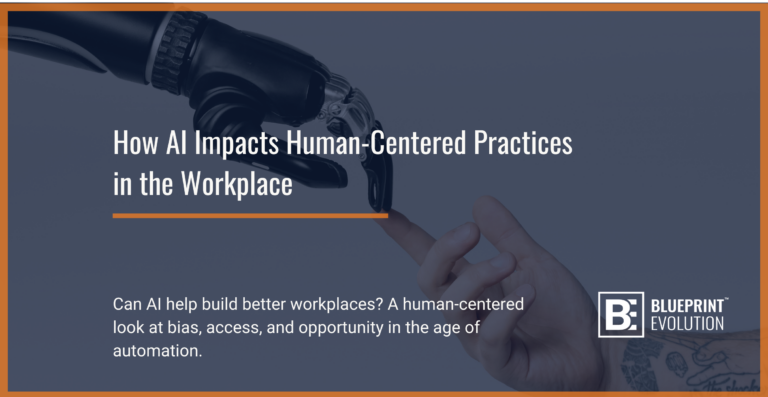Transform your workplace into an inclusive environment using clear metrics and accountability mechanisms.
At Blueprint Evolution, we recognize that establishing these metrics and mechanisms is essential for tracking progress and ensuring accountability in human-centered initiatives. Our Metrics and Accountability services involve setting clear goals related to human-centered processes and regularly measuring and reporting on key metrics such as workforce demographics, employee engagement, and representation in leadership roles.
Why Metrics and Accountability Matters
Tracking and measuring inclusive initiatives is crucial for driving meaningful and sustained change. Studies reveal that companies in the top quartile for diversity are 36% more likely to outperform their peers in profitability.
Furthermore, organizations with diversified executive teams are 21% more likely to achieve above-average profitability. By establishing robust metrics and accountability mechanisms, organizations can effectively monitor progress, identify areas for improvement, and ensure that their human-centered efforts translate into tangible business outcomes. This approach not only enhances overall performance but also fosters a more inclusive and equitable workplace culture.

The Blueprint Process
- Clear Goal Setting: Establish precise and achievable goals tailored to your organization.
- Regular Reporting: Receive comprehensive reports on key metrics, including workforce demographics and employee engagement.
- Leadership Accountability: Ensure leaders and teams are accountable for meeting human-centered objectives, fostering a culture of inclusion.
- Enhanced Employee Engagement: Improve overall employee morale and engagement by promoting an inclusive workplace.
- Strategic Insights: Gain valuable insights into areas of improvement and success within your person-powered processes.
Contact us today to discover more about how we can help you achieve your goals.
OUR HUMAN-CENTERED CONSULTING SOLUTIONS

Conducting equity and inclusion assessments entails gathering employee data and feedback to evaluate the organization’s current cultural climate and level of inclusion. This process may include analyzing demographic data, conducting employee surveys, holding focus groups, and reviewing policies and practices. By assessing the organization’s cultural landscape, leaders can identify areas of strength as well as gaps or challenges that need to be addressed.
Developing inclusive policies and practices means implementing policies and procedures that promote human-centered policies throughout the organization. This includes policies related to recruitment, hiring, promotion, and compensation that are designed to minimize bias and ensure equitable treatment for all employees. In addition, fostering an inclusive work environment entails implementing practices that accommodate diverse perspectives, such as offering flexible work arrangements and ensuring accessibility for all employees’ needs.
Providing employee training and education on human-centered topics is essential for fostering awareness and understanding among all community members. These programs cover various subjects, including unconscious bias, cultural transformation, inclusion, and respectful and effective communication and conflict resolution. Through continued investment in education, organizations empower employees to identify and address bias, promote inclusive behaviors, and play active roles in cultivating a more welcoming and equitable workplace culture.
Leadership development initiatives concentrate on equipping managers and executives with the skills and knowledge required to lead inclusively. This includes offering training and coaching on subjects like inclusive leadership practices, effective communication across diverse teams, and mitigating bias in decision-making. Leaders who excel at empowering their teams to thrive while navigating diverse perspectives are instrumental in driving innovation and organizational success.
Establishing metrics and accountability mechanisms is crucial for tracking progress and ensuring accountability for human-centered initiatives. This involves setting clear goals and targets and regularly measuring and reporting on key metrics, such as workforce demographics, employee engagement, and representation in leadership roles. By holding leaders and teams accountable for achieving goals, organizations can drive meaningful change and create more equitable and inclusive workplaces.
- Workplace Assessments
-
Conducting equity and inclusion assessments entails gathering employee data and feedback to evaluate the organization’s current cultural climate and level of inclusion. This process may include analyzing demographic data, conducting employee surveys, holding focus groups, and reviewing policies and practices. By assessing the organization’s cultural landscape, leaders can identify areas of strength as well as gaps or challenges that need to be addressed.
- Inclusive Policies & Practices
-
Developing inclusive policies and practices means implementing policies and procedures that promote human-centered policies throughout the organization. This includes policies related to recruitment, hiring, promotion, and compensation that are designed to minimize bias and ensure equitable treatment for all employees. In addition, fostering an inclusive work environment entails implementing practices that accommodate diverse perspectives, such as offering flexible work arrangements and ensuring accessibility for all employees’ needs.
- Employee Training & Education
-
Providing employee training and education on human-centered topics is essential for fostering awareness and understanding among all community members. These programs cover various subjects, including unconscious bias, cultural transformation, inclusion, and respectful and effective communication and conflict resolution. Through continued investment in education, organizations empower employees to identify and address bias, promote inclusive behaviors, and play active roles in cultivating a more welcoming and equitable workplace culture.
- Leadership Development
-
Leadership development initiatives concentrate on equipping managers and executives with the skills and knowledge required to lead inclusively. This includes offering training and coaching on subjects like inclusive leadership practices, effective communication across diverse teams, and mitigating bias in decision-making. Leaders who excel at empowering their teams to thrive while navigating diverse perspectives are instrumental in driving innovation and organizational success.
- Metrics & Accountability
-
Establishing metrics and accountability mechanisms is crucial for tracking progress and ensuring accountability for human-centered initiatives. This involves setting clear goals and targets and regularly measuring and reporting on key metrics, such as workforce demographics, employee engagement, and representation in leadership roles. By holding leaders and teams accountable for achieving goals, organizations can drive meaningful change and create more equitable and inclusive workplaces.
ORGANIZATIONAL MANAGEMENT SOLUTIONS
Recent Blogs
Check out our other content on this topic!











